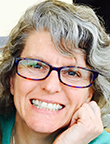“How are you different?” is a question many professionals ask me, regarding my decision to provide weight neutral diabetes care.
While clients often comment meeting with me was “not what I expected,” appointments with a weight neutral diabetes educator share the same end goal as a traditional diabetes education but the difference is how they get there!
Curious about what changed when I decided to stop talking about weight, weight loss, eating a specific diet, restrictive eating, and appearance as it relates to diabetes care?
The first and most notable thing is, I am no longer trying to change my clients. Now, you might jump to the assumption that I don’t care, or I am not trying to help my clients, but the exact opposite is true. I care deeply about my clients and I also know they are bright, capable, and have a better idea of what can help them without me making assumptions, judgments, or spouting out my opinion. In Motivational Interviewing, the decision to not offer advice, or to try to ‘change’ a client is recommended. The giving of advice or opinion is referred to as the ‘righting reflex’ and it is a compassionate desire to help in the face of suffering. As good as advice-giving feels for us, it isn’t effective in promoting change for our clients, because offering advice encourages the client to sit back and let the professionals do all the thinking, finding and gathering solutions, and understanding the larger issues.
“Never work harder than your client.”
This sage advice was something I received when I was an eating disordered dietitian and it applies to diabetes care as well. My all too human impulse to ease suffering by ‘doing all the work’ will only backfire and prevent my client from taking ownership of the issue.
Reinforcing the Status Quo

Shifting to a weight neutral approach has helped me stop clients from repeating all the ‘shouldn’ts’ associated with diabetes such as, “I shouldn’t eat carbs, sugar, sweet, dessert, and white foods, take medicine, be fat, or lazy.” As a weight neutral diabetes educator, I am helping my clients discover what they can do, and what works, like eating delicious yummy food; being aware of carbs; being consistent with movement; exploring the value of rest, play, and boundaries; or any of the thousands of things that help improve blood sugars. By helping the client focus on what is working and affirming these options, the client is better able to let go of all the idealistic plans and suggestions that never resulted in change.
You Do What?
Another change was being clear to the providers who refer to me, exactly what service I was offering. I am not here to ‘fix’ diabetes, blood sugar, or the client. I am part communicator, part facilitator, and part coach. Together the client and I are creating a diabetes plan individualized for him/her. In short, it is what the client believes is possible, now. The client also understands IT IS THE PLAN, not the client, that their provider will be reviewing and evaluating the effectiveness of at the next appointment. This shift from blame to adjusting the plan can decrease the fear, shame, and distress associated with diabetes. The client understands if the plan is working, their blood sugars will be at the targets established by their provider, and if it isn’t, then together some adjustments can be considered.
No Judge or Jury Needed
The next change that happened was personal. I had to stop judging my clients and myself. This decision required me to get clear on what is and isn’t judgment. This point of reflection also provided me an opportunity to clarify my own values and acknowledge my own privilege about self-care, nutrition, movement, and health. Sure, it was a bit painful, but it was necessary because it’s not just the client who benefits from non-judgment, but the provider as well.
Exercise Isn’t Required For Diabetes
The last thing about being a weight neutral diabetes professional which changed is understanding having diabetes (or prediabetes) doesn’t mean you must exercise. In fact, I would like to argue that associating exercise with diabetes is an error I fear many in healthcare are making. Every single person alive needs to move their body. We all can’t do it the same way, but humans are meant to move! It doesn’t matter if a person needs a walker, or a cane, or a leg brace, we were designed to move our bodies in regular and consistent ways. Unfortunately, many of my higher weight clients believe they aren’t exercising ‘right’ which makes them feel like failures. It takes time to find enjoyable ways to move the body, and these naturally change over time. If you move your body via yoga, great. If that isn’t your bag and you are walking, wonderful! Maybe the client needs more support for their joints not because they are at a higher weight (which again feels like blame) but because backs, feet, and knee joints breakdown, lock up, and hurt! Being physically active isn’t just people with elevated blood sugar, it is for everyone!
No Turning Back
What I have come to see is there are a lot of factors beyond my client’s control when it comes to blood sugar. For example, many of my clients have no control if they are healthy. Health is dynamic and the body is designed to age regardless of how much kale a person eats. Shifting my focus from health to supporting self-care even in the face of poor health, felt liberating. Clients would say, “But my A1c is X – I am not healthy!” I heard the fear, the concern, and the desire to act. Instead of agreeing with them, the appointment shifted, and we focused on, “What ideas do you have to improve your health and/or lower your A1c?” The same goes for weight. Many of my clients would explain, “My weight is what is causing my blood sugar to do this!” Instead of agreeing with the client, which feels like some sort of back-handed blame, the conversation might shift by asking, “What if it wasn’t your weight, what else might be cause your blood sugars to do this?” Being a weight neutral diabetes professional means I stopped unintentionally shaming/blaming my higher weight clients.
Understanding nutrition is the cornerstone of health and communicating this without suggesting a person eliminate, avoid, or see food as ‘bad’, takes practice. In fact, this idea is so foreign that many of my clients have no idea how to nourish the body unless they are on a diet. This is an excellent example of how diet culture can warp our perception of health. It does take patience, effort, and support to shift a person’s mindset from restricting food to nourish the body.
I understand the idea of shifting to a weight neutral approach to diabetes care may feel radical, but my experience was exactly the opposite. Becoming a weight neutral diabetes professional felt like a relief. When I stopped trying to change my clients I was able to hear them! My experience has been that sessions are more effective, and provide a more accurate assessments of the challenges facing my clients. The conversations are richer, the insights deeper, the changes my clients make are more sustainable. So, when people wonder why they should become a weight neutral diabetes professionals, the answer is simple, it works.

